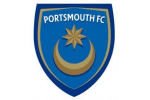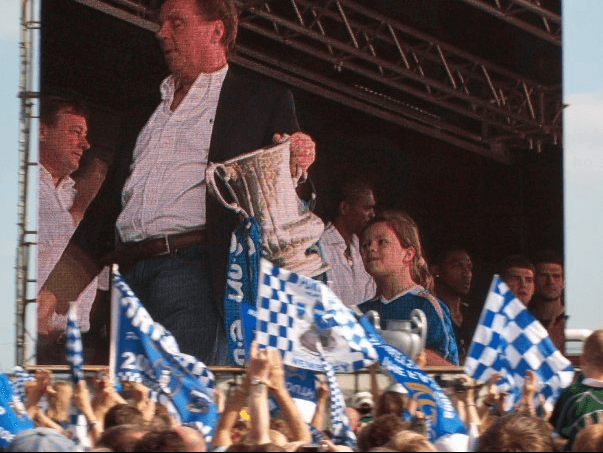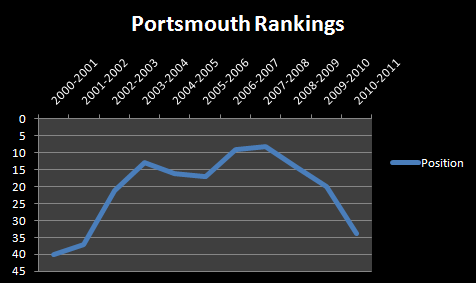 As far as tenuous associations go, paid links and a South Coast based Championship football team would certainly appear to fit the bill. However, if you’ve got the stamina to read on, allow me to explain.
As far as tenuous associations go, paid links and a South Coast based Championship football team would certainly appear to fit the bill. However, if you’ve got the stamina to read on, allow me to explain.
The crux of the problem for both is that essentially they work in theory; buy players or buy links, both should see you flying high in the rankings. However, the end result is often one of crushing failure. Pompey, just like many sites who over invest to achieve fantastic (otherwise unachievable) highs, were brought crashing down to earth by penalties and ever-worsening performances. This particular story starts in the mists of time, eight whole years ago.
Beginning of the Rise – Buying Links
In 2003 Portsmouth were promoted to the Premier league. After a couple of decades of near anonymity, they were back in the big time and ready to lock horns with Arsenal, Manchester United, Chelsea and 16 of the other top teams in the land. Their rise to prominence however was not due to a gradual building process from top to bottom, but came as a result of significant investment in new players and staff. This, in many ways, is like the beginning of a link buying campaign.
Buying a few choice links will often lead to a brief surge in rankings, a jump from page two to the first page of the SERPs. Whilst Google is reasonably good at weeding out sites that are gaming the system, this kind of low level manipulation can go unnoticed, certainly for a while at least.
Following promotion, Portsmouth plateaued. The investment dried up for a while, seeing the club drift closer to relegation – kind of like being at the bottom of the first page on Google really, it’s good, but not great. Then, someone had the bright idea to sell the club to a rich new owner.
Getting Greedy – Paid Link Schemes
Suddenly Portsmouth were buying players for fun. In terms of links, this was akin to signing up to a link buying service or farm. Snap up a few quality players/links and a fair few below par ones too. Come one, come all – Utaka included; the target was to get to the top of the rankings at any cost, even if a few rules are broken along the way and common sense is sacrificed entirely.
 Unfortunately, all good things must come to an end. After winning the FA Cup in 2008, which is probably like getting up to second for your primary key phrase, the club unravelled. So reckless was their investment that they were soon found out. Portsmouth were crippled by debt and plunged down the rankings, aided by a penalty (points deduction) from the FA.
Unfortunately, all good things must come to an end. After winning the FA Cup in 2008, which is probably like getting up to second for your primary key phrase, the club unravelled. So reckless was their investment that they were soon found out. Portsmouth were crippled by debt and plunged down the rankings, aided by a penalty (points deduction) from the FA.
This is exactly the same outcome you can expect if you’re going to try to take a shortcut to the top in SEO. The taste of glory that you have will eventually be soured by the ignominy of a return to search engine anonymity. Whilst you might benefit from decent brand awareness in this time, even that will eventually fade as you sink back down to the second tier of rankings. You probably won’t default on HMRC payments, or have the same financial damage admittedly, but the loss of status can be equally damaging for long-term prospects.
Portsmouth could have been lucky. They could have found the money that would have saved them, which would have allowed them to stay amongst the leading clubs in the country. However, as with most that reach too high (Leeds Utd being another good example), eventually the deck of cards on which their success was built soon tumbled. Websites that have rankings built on paid links are no different.

If you manage to avoid a penalty and relegation, it is more by luck than judgement. The quick path to success is one that we all want to tread, but there is no way of achieving this; certainly not in the competitive worlds of Google rankings and Premier League football.
Starting Again
Today Portsmouth are penniless and in much the same position that they were 10 years ago – hoping for mid-table anonymity in the second tier. No doubt a valuable lesson has been learnt, but it has come at a cost. Just like a site that has been penalised, there is a way back to the top. However, you have to do it the right way. Build up strength, optimise all departments and work your way up.
JC Penney may have regained their position at the top of Google after a spell on the naughty step, but for the majority of smaller sites, this isn’t the case – especially when all links are stripped out. For Pompey, the damage they suffered was of their own doing and unfurled very publicly. However, as was the case with the aforementioned online store, paid links won’t always be found by search engines first – they may well be discovered by competitors with a healthy interest in your demise. So engaging in any such activity could see you being shot down from a number of directions, making it all the more risky.
So unless you want your site to end up like poor old Portsmouth, make sure you play by the rules. You can’t get to the top of the league by breaking all of the rules and ignorance is certainly no excuse.
Disclaimer: As a Portsmouth supporter I speak from crushing experience.





Leave a Reply